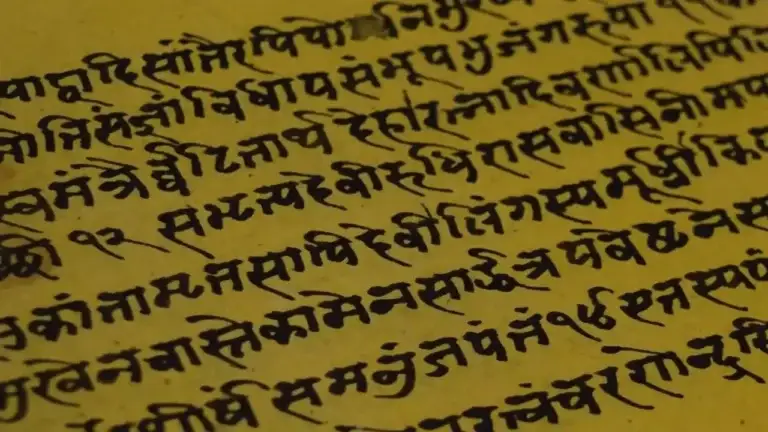Why Teachers Are Not Gurus
In many traditions, the roles of a teacher and a guru, though both centered on imparting knowledge, diverge in depth and scope. A teacher provides education on specific subjects, focusing on intellectual development within a structured curriculum. In contrast, a guru transcends conventional teaching by guiding disciples on a holistic spiritual journey, addressing personal growth and enlightenment. This exploration delves into the nuanced differences between teachers and gurus, highlighting their unique contributions to personal and spiritual development.

Have you ever wondered why the term ‘Guru’ feels so profound yet is often misused? In a world where titles like “tech guru” or “finance guru” are casually thrown around, we need to pause and reflect on the true essence of a Guru. While both teachers and Gurus impart knowledge, their roles are vastly different—and understanding this difference can deepen your perspective on learning, spirituality, and life itself.
The Sanskrit term ‘Guru’ holds a far greater significance than simply being an expert in a field. If you’re looking for a more appropriate Sanskrit equivalent for a teacher, it’s ‘Shikshak,’ not ‘Guru.’ So, what makes a Guru different? And why is this distinction so important? Let’s delve deeper.
The True Meaning of a Guru
In India, there exists a well-defined hierarchy of teachers, each with unique roles. Among these, the title of Guru stands unparalleled. While teachers (or Shikshaks) may impart knowledge about specific subjects, a Guru’s role transcends the material realm.
A Guru is not merely a guide to academic or technical expertise but a torchbearer who illuminates the path out of ignorance and spiritual darkness.
गुशब्दस्त्वन्धकारः स्यात् रुशब्दस्तन्निरोधकः ।
अन्धकारनिरोधित्वात् गुरुरित्यभिधीयते ॥ १६॥
“The syllable gu means darkness, the syllable ru, he who dispels them.
Because of the power to dispel darkness, the guru is thus named.”
— Advayataraka Upanishad, Verse 16
A popular etymological theory considers the term “Guru” to be based on the syllables gu (गु) and ru (रु), which represent darkness and the light that dispels it, respectively. The Guru is seen as the one who “dispels the darkness of ignorance.”
This profound understanding highlights why a Guru’s role extends beyond mere teaching. They are the harbinger of light, wisdom, and spiritual awakening, guiding their disciples to self-realization and divine connection.
A Personal and Sacred Bond
Unlike teachers, who are often many in number, a Guru is deeply personal. You might have several teachers for various skills and subjects, but a Guru is singular—a spiritual guide who transforms your life by helping you find clarity, purpose, and inner peace.
The distinction becomes even more significant when we consider the immense respect accorded to a Guru in Indian culture. A Guru is revered above even God because they are the ones who introduce their disciple to the divine. This sentiment is beautifully captured in the timeless words of Sant Kabir:
“Guru Gobind dou khade, kaa ke laagu pae,
Balihari Guru apne, Govind dio milae.”
Translated, this means:
“If both Guru and Govind (God) stand before me, whose feet should I touch first? It is my beloved Guru’s feet I bow to, for it is they who introduced me to God.”
This couplet encapsulates the essence of a Guru’s role. The Guru is not merely a teacher but a spiritual bridge, guiding one toward enlightenment.
Why the Title of Guru Must Be Earned
In today’s world, where journalists and marketers casually use terms like “tech guru” or “marketing guru,” it is crucial to preserve the sanctity of this term. A Guru is much more than an expert. They are a liberator, a spiritual mentor, and a beacon of hope who helps their disciples transcend worldly limitations.
Let us honor the profound meaning of the word ‘Guru’ and reserve it for those who truly deserve it. After all, a Guru is not someone you find every day—they are the ones who transform lives, dispel ignorance, and illuminate the divine path.
Final Thought:
As you reflect on your own journey, ask yourself—who has truly helped you overcome darkness in your life? Perhaps you have found your Guru, or perhaps the search is still ongoing. Either way, remember: a teacher educates the mind, but a Guru awakens the soul.



[…] Why Teachers Are Not Gurus Why all religions had similar gods? […]